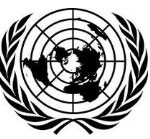 Ayaz Gul
Ayaz Gul
VOA News
September 18, 2022
ISLAMABAD — The United Nations Sunday renewed its call for Afghanistan’s Taliban to urgently reopen schools to teenage girls, denouncing the anniversary of their exclusion from education as “tragic, shameful, and entirely avoidable.”
Since taking control of the conflict-torn country in August of last year, the Islamist group has instructed girls in grades 7 to 12 to remain home, which has mainly affected girls aged between 12 and 18.
“The ongoing exclusion of girls from high school has no credible justification and has no parallel anywhere in the world,” Markus Potzel, the acting chief of the U.N. Assistance Mission in Afghanistan said in a statement.
“It is profoundly damaging to a generation of girls and to the future of Afghanistan itself,” he said.
The Taliban reopened high schools to boys last year on September 18 but have ignored international calls for allowing female students to return to classroom. In recent days girls have also taken to the streets in some Afghan cities to protest the ban on their education.
“A year of lost knowledge and opportunity that they will never get back. Girls belong in school. The Taliban must let them back in,” U.N. Secretary-General Antonio Guterres wrote on Twitter.
The hardline Taliban rulers have also ordered women to cover their faces in public and told female staff in many public sector departments to stay home, saying the rules are in line with Afghan culture and Islamic law.
Taliban spokesman Zabihullah Mujahid told VOA his government is determined to resolve the problem of girls’ education within the framework of Sharia, or Islamic law.
“Whether it’s a problem with the world or not, our own people also demand the same from us. We are trying to find a positive way out,” he said.
Mujahid insisted that reopening schools to girls is an internal Afghan matter and other countries should not link the issue to establishing ties with the Taliban government.
“This is also an internal problem of Afghanistan, it is the issue of our people, it is the issue of my children and my daughter. There is no room for outside intervention,” Mujahid told VOA.
The U.N. mission has estimated that the closure of female schools has barred more than 1 million girls across Afghanistan from receiving an education over the past year. It pressed the Taliban to reverse the slew of rules curbing basic rights of Afghan women and girls, saying the restrictions increase the risk of marginalization, violence exploitation and abuse against them.
“If the ban on girls attending high school remains, the U.N. is increasingly concerned that such measures, taken together with other restrictions being placed upon Afghans’ basic freedoms, will contribute to a deepening of the crises facing Afghanistan, including greater insecurity, poverty and isolation,” the statement said.
Other countries have not yet recognized the Taliban government because of its curbs on women’s and girls’ access to work and education, and for suppressing other civil liberties.
The return of the Taliban to power has deepened an already bad humanitarian crisis in Afghanistan and pushed its war-hit economy to the brink of collapse.
The economic crisis, international economic sanctions and suspension of foreign financial assistance have made it difficult for the Islamist group to govern the poverty-stricken South Asian nation of about 40 million people.
More than half of the Afghan population suffers from acute hunger, according to U.N. assessments.
Related

